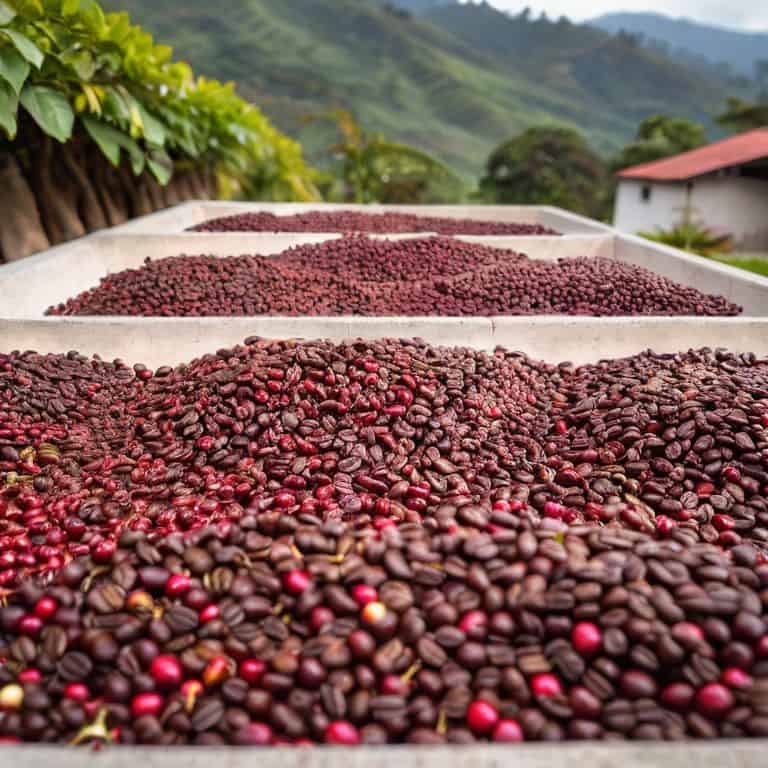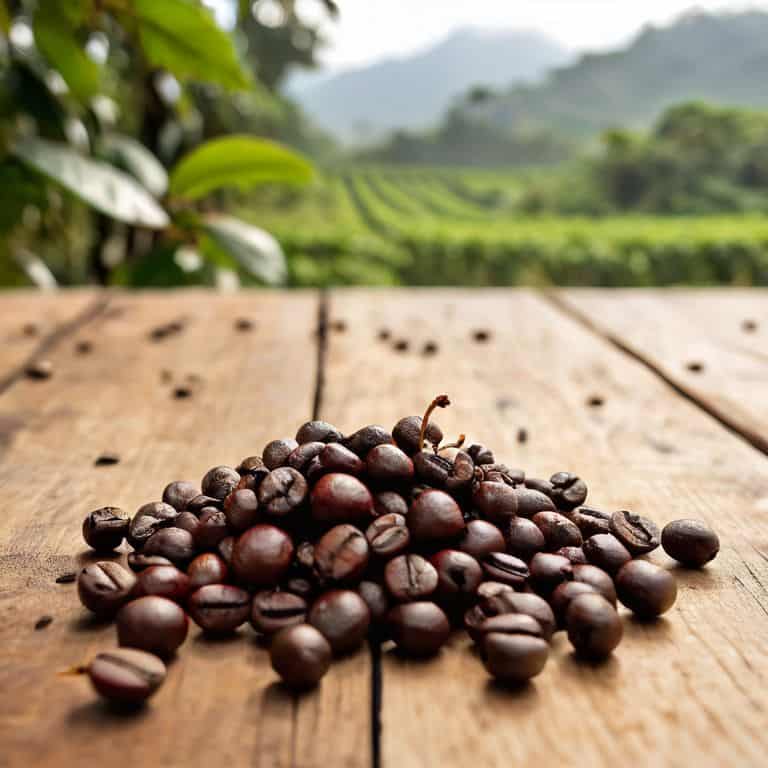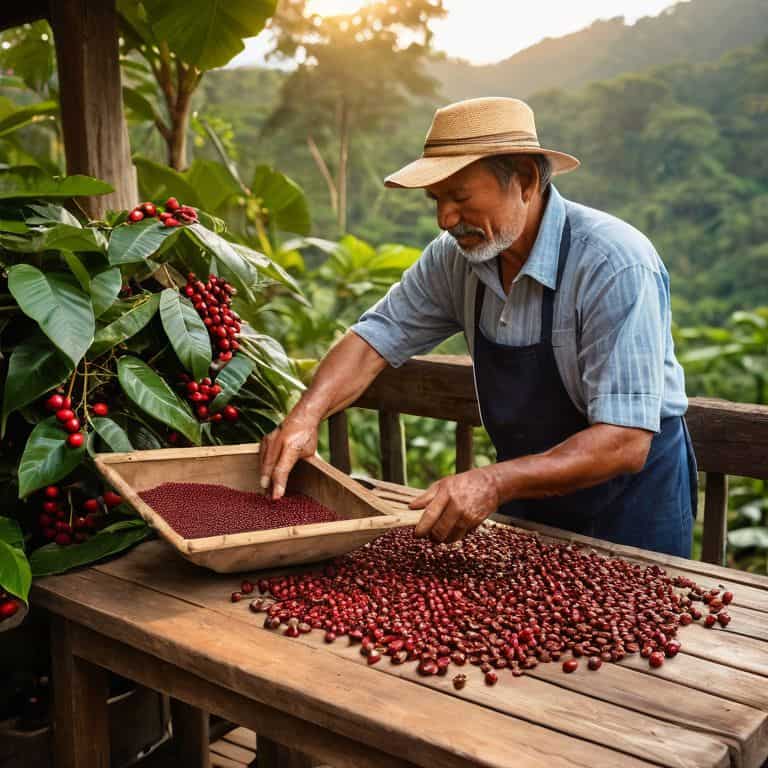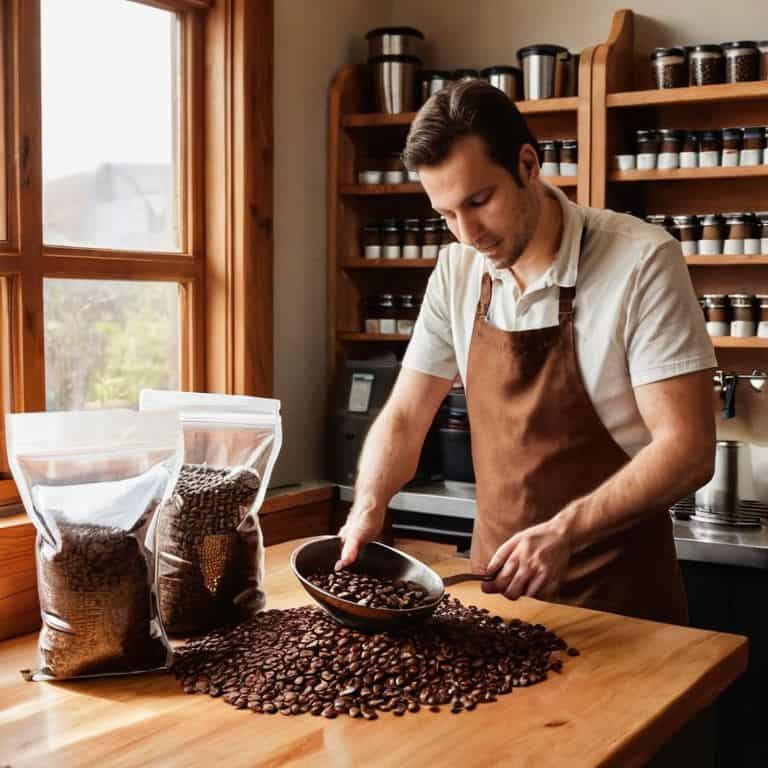I still remember the first time I tasted a naturally processed coffee – it was like a symphony of flavors on my palate. But whenever I try to explain what natural process coffee is to someone, I’m often met with a mix of confusion and misinformation. The question what is natural process coffee seems to spark a lot of debate, with some claiming it’s the only way to truly experience the terroir of a coffee, while others see it as a fad. As someone who’s spent years working with coffee farmers, I’ve seen firsthand how this method can bring out the unique characteristics of a coffee, making it taste more like the soil and sun it was grown in.
In this article, I promise to cut through the hype and give you a straightforward, experience-based look at what natural process coffee is all about. I’ll share my own stories from the farm, and break down the basics of this traditional method, so you can understand what makes it so special. My goal is to help you appreciate the craftsmanship and dedication that goes into producing these unique coffees, and to give you a deeper connection to the people and places behind your cup. So, if you’re ready to taste the difference and understand the story behind natural process coffee, let’s dive in and explore the world of single-origin coffees together.
Table of Contents
- Unveiling Natural Process
- What Is Natural Process Coffee
- Unlocking the Secrets of Natural Process Coffee: 5 Essential Tips
- Key Takeaways from the World of Natural Process Coffee
- The Essence of Natural Process
- Embracing the Natural Process: A Journey of Flavor and Discovery
- Frequently Asked Questions
Unveiling Natural Process

As I delve into the world of natural process coffee, I’m reminded of my visits to farms in Latin America, where the art of dry processing coffee is a testament to tradition and innovation. The dry processing coffee benefits are numerous, from enhancing the coffee’s body and flavor to reducing the environmental impact of processing. This method allows the coffee cherries to dry in their fruit, which can lead to a more complex flavor profile.
The difference between wet vs dry coffee processing lies in the level of moisture present during processing. Natural process coffee, also known as dry processing, involves drying the coffee cherries in their entirety, whereas wet processing removes the skin and pulp of the fruit before drying. This distinction significantly affects the final product, with natural process coffee often exhibiting fruity and floral notes. The coffee fermentation time also plays a crucial role in shaping the flavor, as it allows the natural enzymes to break down the sugars and contribute to the coffee’s unique taste.
During my home roasting experiments, I’ve grown to appreciate the nuances of natural coffee processing steps. From the careful selection of cherries to the meticulous monitoring of coffee bean drying techniques, each stage requires attention to detail and a deep understanding of the craft. Specialty coffee processing methods, like natural process, have revolutionized the way we experience coffee, offering a glimpse into the terroir and the people behind the beans.
Dry Processing Coffee Benefits Revealed
As I delve into the world of natural process coffee, I’m reminded of the unique flavor profiles that emerge from this traditional method. The dry processing technique allows the coffee cherries to ripen and dry in their own time, resulting in a distinct taste that’s both fruity and floral.
The benefits of dry processing are numerous, but one aspect that stands out to me is the preservation of nuances. By not washing away the natural oils and impurities, the coffee retains a certain character that’s often lost in other processing methods. This approach requires great care and attention from the farmers, making every batch a true reflection of their skill and dedication.
Wet vs Dry Coffees Fermentation Tale
As I delve into the world of natural process coffee, I’m reminded of the intricate dance between wet and dry processing methods. The choice between these two approaches can greatly impact the final flavor profile of the coffee. I’ve had the privilege of witnessing firsthand how farmers carefully decide which method to use, taking into account factors like climate, soil, and the specific characteristics of their coffee cherries.
The fermentation process is where the magic happens, as it allows the coffee’s unique traits to shine through. In dry processing, the coffee cherries are left intact, which can result in a fruitier and more full-bodied flavor. This approach requires great skill and attention to detail, as the beans need to be constantly monitored to prevent over-fermentation.
What Is Natural Process Coffee

As I delve into the world of natural process coffee, I’m reminded of the dry processing coffee benefits that set it apart from other methods. The process of drying coffee cherries in their fruit, without the use of water, allows for a more nuanced flavor profile to emerge. This method, often referred to as dry processing coffee, enables the coffee to absorb the flavors and aromas of the surrounding environment, resulting in a truly distinct taste experience.
The coffee fermentation time plays a crucial role in shaping the flavor of natural process coffee. As the coffee cherries dry, they undergo a process of fermentation, which can last anywhere from a few days to several weeks. This period of fermentation allows for the breakdown of complex compounds, resulting in a coffee that is both smooth and full-bodied. The careful balance of coffee bean drying techniques and fermentation time is what sets natural process coffee apart from other specialty coffee processing methods.
In my experience, the key to understanding natural process coffee lies in appreciating the interplay between the coffee plant and its environment. By embracing the natural processes that occur during drying and fermentation, coffee producers can create a truly unique and delicious product. The natural coffee processing steps may vary from farm to farm, but the end result is always a coffee that is deeply connected to the land and the people who cultivate it.
Coffee Bean Drying Techniques Explored
As I reflect on my visits to coffee farms, I’m reminded of the meticulous care that goes into drying coffee beans. The method used can greatly impact the final flavor, and I’ve seen firsthand how patience is crucial in this process. Whether it’s sun drying or using machines, the goal is to bring out the unique characteristics of the coffee.
In my own experiments with home roasting, I’ve come to appreciate the importance of even drying. It’s a delicate balance that can make or break the flavor profile of the coffee. When done correctly, it allows the natural flavors of the coffee to shine through, creating a truly exceptional cup.
Specialty Coffee Through Natural Steps
As I reflect on my journeys to coffee farms, I’m reminded that natural process coffee is a true embodiment of terroir-driven flavors. The way the coffee cherries are dried in their fruit, allowing the sugars and acids to mingle, results in a cup that’s uniquely reflective of the farm’s soil, climate, and careful handling.
In my experience as a head roaster, I’ve found that small-batch roasting is essential to bringing out the full potential of natural process coffees. By carefully coaxing out the distinct flavor profiles, I can share the story of each bean’s origin with our customers, connecting them to the land and the people who nurtured those coffee plants.
Unlocking the Secrets of Natural Process Coffee: 5 Essential Tips
- Understand the role of fermentation: Natural process coffee relies on the natural fermentation process that occurs during drying, which can bring out unique and complex flavors in the coffee
- Experiment with different drying techniques: From patio drying to machine drying, the method used can significantly impact the final flavor profile of the coffee
- Appreciate the importance of soil quality: The terroir of the farm, including the soil acidity and nutrient content, plays a crucial role in shaping the flavor of natural process coffee
- Recognize the skill of the farmer: Natural process coffee requires a great deal of skill and attention to detail from the farmer, who must carefully monitor and control the drying and fermentation process
- Be prepared for variability: Natural process coffee can be more susceptible to variability in flavor and quality due to factors like weather and processing conditions, making each batch a unique experience
Key Takeaways from the World of Natural Process Coffee
I’ve discovered that natural process coffee is more than just a method – it’s a way to preserve the unique terroir of each farm, from the rich soil to the careful hands that harvest each cherry
The dry processing method used in natural process coffee allows for a more pronounced flavor profile, with notes of fruit and wine that are simply captivating, and a deeper understanding of the coffee’s origin
By embracing natural process coffee, we not only experience a more complex and nuanced cup, but also support the dedicated farmers who work tirelessly to bring us these exceptional beans, and the traditional techniques that make each one a true reflection of its land
The Essence of Natural Process
Natural process coffee is more than just a method – it’s a testament to the land, the people, and the traditions that nurture it; every sip is a tangible connection to the earthy scent of the soil, the warmth of the sun, and the diligent hands that coax these cherries to maturity.
Samuel Jones
Embracing the Natural Process: A Journey of Flavor and Discovery

As I reflect on our journey through the world of natural process coffee, I’m reminded of the intricate dance between nature, farmer, and processor. From the benefits of dry processing to the nuances of wet vs dry fermentation, and the careful techniques used to dry these precious coffee beans, every step plays a crucial role in shaping the final flavor. It’s a story of terroir, of the land, the climate, and the human touch that coaxes out the unique characteristics of each coffee cherry. By understanding and appreciating these factors, we can deepen our connection to the coffee we drink and the people who produce it.
As we conclude this exploration of natural process coffee, I hope you’ll join me in embracing the beauty of imperfection that this method embodies. Let’s celebrate the hard work of coffee farmers, the richness of the soil, and the sun’s warm touch that all come together in a single cup. By choosing natural process coffee, we’re not just selecting a brewing method; we’re supporting a tradition that values the land, the community, and the passion that goes into every step of the coffee’s journey from farm to cup.
Frequently Asked Questions
How does the natural process method affect the flavor profile of coffee cherries?
The natural process method truly showcases the coffee cherry’s inherent flavors. By allowing the fruit to dry intact, the coffee absorbs the sweetness and nuances of the surrounding pulp, resulting in a richer, fruitier flavor profile with notes of berries and wine. It’s like tasting the essence of the farm in every cup.
What are the main differences between natural and washed processing methods in terms of fermentation and drying?
For me, the difference between natural and washed processing comes down to fermentation and drying. Natural processing leaves the cherry intact, allowing for a slower, more complex fermentation, while washed processing removes the skin and pulp, resulting in a cleaner, brighter flavor. Drying methods also vary, with naturals often dried in their fruit, and washed coffees dried as parchment.
Can natural process coffee be produced in any coffee-growing region, or are there specific climates and soils that are better suited for this method?
While natural process coffee can be produced in various regions, it thrives in areas with distinct dry seasons, like Ethiopia’s highlands. The climate and soil must align to prevent spoilage and bring out the unique flavors. I’ve seen it flourish in regions with rich, volcanic soils and moderate altitudes, where the dry air slows down fermentation, resulting in a truly distinct cup.



